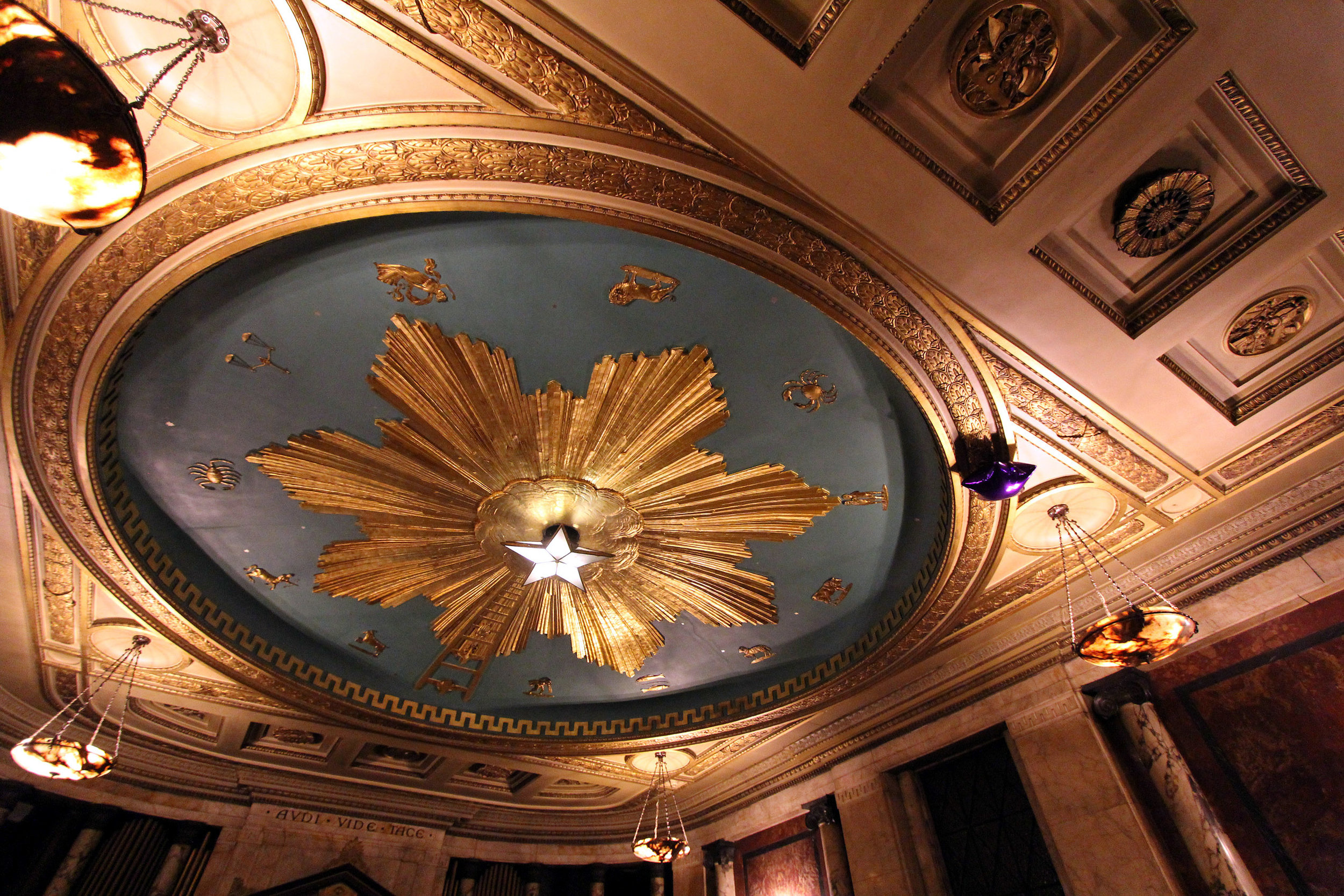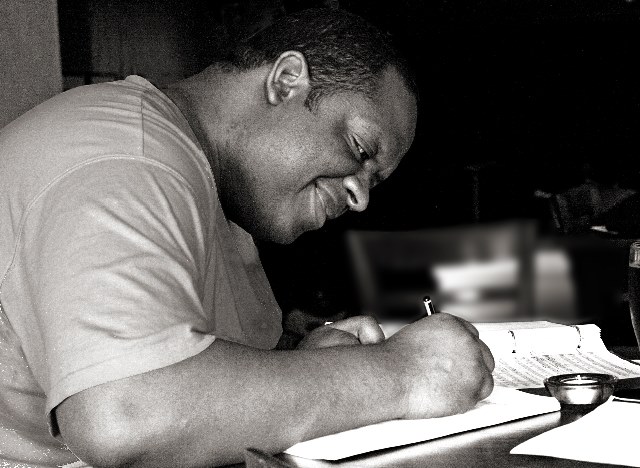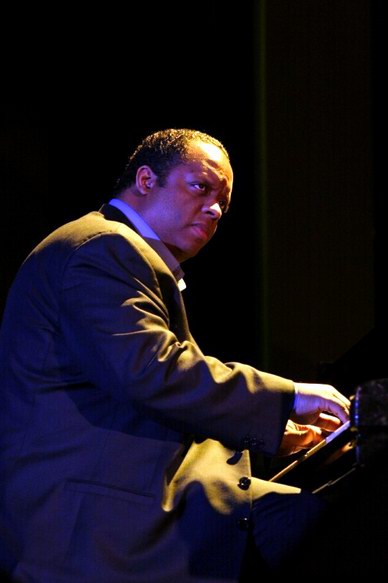
- 'World-class jazz pianist with large-scale compositional skills and a passport to the contemporary-classic world' - The Guardian
There are some concerts that simply take your breath away.
Ellington at the Temple, performed by Julian Joseph as part of the City of London Festival, was unquestionably a breath-taker. A number of components made it an enchanting evening - the mystical venue, the unmitigated talent of the performer and the power of the music of Duke Ellington.
Julian Joseph was born in London and grew up amongst an exceptionally strong crop of British jazz musicians before taking up a scholarship at the Berklee School of Music in Boston, Massachusetts in 1985. He is a noted solo performer as well as a prodigious composer and arranger of classical and jazz music for big band and strings, full symphony orchestra and opera. To add further to his accomplishments, he is also a respected broadcaster having presented jazz television series and several radio shows. He is also the recipient of a number of music awards, including his most recent accolade - a British Academy of Songwriters, Composers and Authors (BASCA) Gold Badge for his contribution to the British music industry. Julian is also a trustee and vice-president of the National Youth Jazz Collective.
It is widely recognised that Duke Ellington was one of the greatest pianist and composers to have lived. However, it is perhaps less well known that he was a member of the secret society of the freemasons along with some other well-known African-American musicians including Dizzy Gillespie and Nat King Cole. So when a long dormant and beautifully opulent masonic temple, built in 1912, was recently discovered next to Liverpool Street station in London (now the very impressive Andaz Hotel) the City of London's Festival Director, Paul Gudgin, believed it would be 'a perfect place to play tribute' to Ellington.
So it was on a bustling Friday evening that I found myself cocooned in this elaborate, neo-classical venue as a guest of Jazz FM to witness a remarkable performance from Julian Joseph. A 'perfect place' indeed it was - a masonic temple with reportedly twelve types of marble and gold gilt, the space was remained forgotten and walled off for decades before it was rediscovered during a refurbishment of the hotel in the 1990s. A golden pipe organ, monochrome checkered floor laid in marble and hand-carved mahogany furniture evidenced the dramatic craftsmanship. Candles burned around the room to create a formidable yet terrific air of secrecy.

- Julian Joseph at the Masonic Temple, Andaz Hotel Liverpool Street for City of London Festival 2014 Credit: City of London Festival
My friend and I had the pleasure of bumping into Julian Joseph in the hallway minutes before the show began. He was cordial and thanked us for coming, a humble response given his status as one of the finest pianists to emerge this side of the Atlantic and a powerhouse in contemporary jazz for over two decades. So when he arrived into the room, with a 'Lovely to see you all' and 'Let's see what I have got for you, I already felt as if we were acquainted.
He took his seat at the grand piano and introduced the first song to be taken from Ellington's considerable repertoire, Do Nothin' Till You Hear From Me. His playing was dynamic and immediately compelling and the noise reverberated around the temple aided by the remarkable acoustics. It was almost the only sound that could be heard in the windowless but far from oppressing temple, aside from my pencil softly but frantically moving across the page of my notebook as I tried to capture the visual and audio experience without making any noise at all. To use an iPhone would have guaranteed silent note taking, but a smartphone was the antithesis to the beautiful surroundings and sensation of being present in another time.
Julian Joseph noted that the next song, Heaven from the Second Sacred Concert album was as equally as deceptive at the beginning and I agreed; the song changed pitch somewhere in the middle and I felt like I was listening to an entirely different song. It was played effortlessly with a depth and vitality that left the intimate audience of around sixty people enraptured, in effect our own little lodge worshipping the sound. Some people had their eyes closed while others elicited a satisfied murmur of approval. As for me, I couldn't conceal a contented smile. It felt somewhat esoteric to be part of the audience but there was no sense of exclusivity.
Guest's chairs for the evening were hand carved mahogany thrones conjoined in a circle around the room. One great throne faced the audience, also framed by candles, as if reserved for a Grand Master presiding over us all and listening to the music. My own throne afforded me a vantage point; as Julian Joseph played his fingers moved across the piano dexterously, as if possessed by the spirit of Ellington himself, and his feet tapped along to the rhythm of the music. The turquoise and gold-gilded domed ceiling loomed brilliantly above the piano, adorned with signs of the zodiac. A beautiful lightbulb in the shape of a stair and four great marbled lights in the shape of scales added a cryptic air.

- Julian Joseph at the Masonic Temple, Andaz Hotel Liverpool Street for City of London Festival 2014 Credit: City of London Festival
A Song for my Father was my favourite of the pieces performed that evening. With each pieceJulian Joseph performed he told an anecdote or provided an interesting narrative which embellished the music. Part way through the performance there was a mysterious clatter from somewhere behind the Grand Master's throne, and the official photographer and I looked at each other quizzically and grinned. I like to think the music roused the spirits; maybe it was a pantheon of the all time jazz greats expressing their pleasure of a man honouring their legacy with such skill and respect.
With one more beautiful piece played, Julian Joseph bowled graciously, smiled at his fraternity and left the room while the intimate audience kept up a steady stream of applause. 'That's a long way to go to make a point' he quipped as he returned for a well deserved encore before making his exit.
The biography on Julian Joseph's website provides a perfect synopsis.'The multi-faceted dimensions of his artistry are plain. As a pianist he is unsurpassed, as a composer he has brought new vitality to the music, and as a descendent of the jazz greats, he is not only fulfilling their legacy, but continues to honour their ground-breaking spirit into the twenty-first century.'
Ellington at the Temple enabled me to get lost in music, escape modem life for an hour or so and experience something so special. Julian Joseph is a true champion of the music.
Credits A special thank you to Paul Gudgin (City of London Festival Director), David Lasserson (Associate of Brunswick Arts Consulting LLP) and City of London Festival for assistance with this article and for the photographs as credited. References- 2 July 2014 - the guardian.com - The Secret history of the jazz greats who were freemasons
- 9 December 2009 - Londonist - In pictures: The Masonic Temple of Liverpool Street
- Date unknown - Atlas Obscura - Masonic Lodge of the Andaz Hotel



